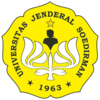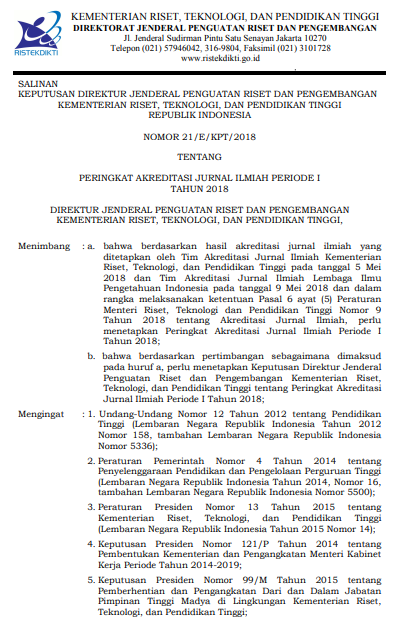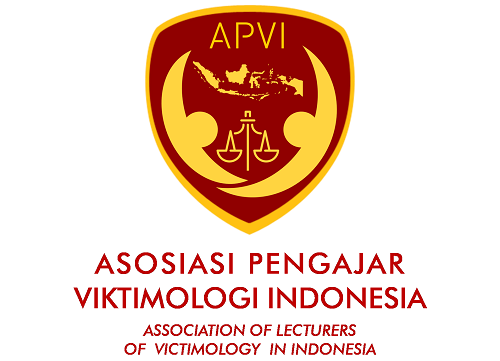Indirect Evidence in Disclosing Cartel Violations Under Business Competition Law in Indonesia
Abstract
Cartels, or secret deals among competitors to set prices, limit production, or divide markets, pose a significant challenge to healthy competition and market integrity around the world, including in Indonesia. This study examines the use of indirect evidence, such as economic data and communication patterns, in uncovering such covert operations under the Indonesian Competition Law (Law No. 5 of 1999), using the normative juridical approach. The study uses statutory analysis to understand the legal framework, case analysis to explore the use of indirect evidence in law enforcement, and conceptual analysis to enhance theoretical understanding. This study analyzes the decisions of the KPPU and District Courts, KPPU regulations, and relevant legal frameworks to understand the applicability and challenges of using circumstantial evidence in legal proceedings. The results of the study make it clear that, despite its important role, the study identifies legal uncertainty and the need for corroborating evidence as the main obstacles to the effectiveness of indirect evidence. It reveals a significant gap in the acceptance and interpretation of indirect evidence between the KPPU and the judiciary, highlighting the need for clarity and consistency in the law. This review recommends the revision of Law No. 5 of 1999 and related procedural laws to include provisions for the acceptance and utilization of circumstantial evidence, improving the adjudication process of both the KPPU and the courts. This research contributes to Indonesia's understanding of competition law enforcement and promoting fair business practices.
Full Text:
PDF View
References
Agung, A., Duwira, G., Santosa, H., Dewi, L. K., & Ketut, N. (2023). The Cartel Proof in Business Competition Law : From the Rule of Reason to Per Se Illegal. 10(4), 251–264.
Akhyat, I. (2019). Penggunaan Indirect Evidence (Alat Bukti Tidak Langsung) Dalam Proses Pembuktian Dugaan Praktik Kartel Di Indonesia Oleh KPPU. Era Hukum - Jurnal Ilmiah Ilmu Hukum. https://doi.org/10.24912/erahukum.v16i2.4533
Almarosy, S. (2018). Proses Penyusunan HPS Berdasarkan Perlem No. 9 Tahun 2018. http://www.sukrialmarosy.com/2018/07/proses-penyusunan-hps-berdasarkan.html
Antoni, V. (2014). The Position of Indirect Evidence as Verification Tools in The Cartel Case. Mimbar Hukum - Fakultas Hukum Universitas Gadjah Mada. https://doi.org/10.22146/jmh.16059
Arai, K. (2015). Indirect Evidence in Japanese Cartel Control. IIC International Review of Intellectual Property and Competition Law. https://doi.org/10.1007/s40319-015-0332-1
Ayu Rizkia, A., & Rahmawati, S. (2021). Faktor-Faktor Yang Mempengaruhi Anti Monopoli Dan Persaiangan Bisnis Tidak Sehat : Globalisasi Ekonomi, Persaingan Usaha, Dan Pelaku Usaha. (Literature Review Etika). Jurnal Ilmu Manajemen Terapan. https://doi.org/10.31933/jimt.v2i5.572
Bima Alfian, F., & Murniati, R. (2023). Implementasi Bukti Tidak Langsung dalam Penyelesaian Perkara Hukum Persaingan Usaha. Jurnal Persaingan Usaha, 3(2), 106–119. https://doi.org/10.55869/kppu.v3i2.94
Bork, R. H., & Gregory Sidak, J. (2012). What does the chicago school teach about internet search and the antitrust treatment of google? Journal of Competition Law and Economics. https://doi.org/10.1093/joclec/nhs031
Bortenev, A., Kozlova, M., & Sergacheva, O. (2020). Protection from Digital Cartels at Electronic Auctions. In Lecture Notes in Networks and Systems. https://doi.org/10.1007/978-3-030-39797-5_15
Brock, W. A., & Kleidon, A. W. (1992). Periodic market closure and trading volume. A model of intraday bids and asks. Journal of Economic Dynamics and Control. https://doi.org/10.1016/0165-1889(92)90045-G
Fellman, S., & Shanahan, M. (2020). Beyond the market: broader perspectives in cartel research. Scandinavian Economic History Review. https://doi.org/10.1080/03585522.2020.1820902
Feltovich, N., & Hamaguchi, Y. (2018). The Effect of Whistle-Blowing Incentives on Collusion: An Experimental Study of Leniency Programs. Southern Economic Journal. https://doi.org/10.1002/soej.12263
Frels, J. K., Shervani, T., & Srivastava, R. K. (2003). The integrated networks model: Explaining resource allocations in network markets. Journal of Marketing. https://doi.org/10.1509/jmkg.67.1.29.18586
Frignani, A., & Rossi, G. (2003). Exchanges of Information among Competitors: A Comparative Survey. Business Law International, 54. https://heinonline.org/HOL/LandingPage?handle=hein.journals/blawintnl2003&div=8&id=&page=
Hantoro, N. M. (2022). Export Case of Cooking Oil Raw Material : Mafia or Cartel ? https://berkas.dpr.go.id/pusaka/files/info_singkat/Info Singkat-XIV-8-II-P3DI-April-2022-187-EN.pdf
Herlina, N. (2018). Tinjauan Terhadap Mekanisme Penanganan Perkara Persaingan Usaha Tidak Sehat. Jurnal Ilmiah Galuh Justisi. https://doi.org/10.25157/jigj.v6i1.1244
Ireland, R. D., & Auken, P. M. Van. (1987). Entrepreneurship and Small Business Research: An Historical Typology and Directions for Future Research. American Journal of Small Business, 11(4), 9–20. https://doi.org/10.1177/104225878701100401
Jawani, L. (2022). Prinsip Rule Of Reason Terhadap Praktik Dugaan Kartel Di Indonesia. Jurnal Lex Renaissance. https://doi.org/10.20885/jlr.vol7.iss1.art3
Kamal, M. (2010). Hukum Persaingan Usaha (Teori Dan Praktiknya Di Indonesia). Raja Grafindo Persada.
Katsoulacos, Y., Avdasheva, S., & Golovanova, S. (2016). Legal standards and the role of economics in Competition Law enforcement. European Competition Journal. https://doi.org/10.1080/17441056.2016.1259089
Khandelwal, K. (2021). Parliament Attack Case: Confessions & Evidence – Judicial Analysis. Supremo Amicus, 25. https://supremoamicus.org/wp-content/uploads/2021/08/Kush-Khandelwal.pdf
Komisi Pengawas Persaingan Usaha. (2021). Dua Dekade Penegakan Hukum Persaingan: Perdebadan Dan Isu Yang Belum Terselesaikan. https://kppu.go.id/wp-content/uploads/2021/04/Buku-2-Dekade-KPPU.pdf
Komisi Pengawas Persaingan Usaha Republik Indonesia. (2023). Laporan Lima Tahun 2018-2023: Lima Tahun Membumikan Persaingan Dan Kemitraan. https://kppu.go.id/wp-content/uploads/2024/01/Laporan-Lima-Tahun-KPPU-2018-2023.pdf
Lee, J. Y. H., Saunders, C., Panteli, N., & Wang, T. (2021). Managing information sharing: Interorganizational communication in collaborations with competitors. Information and Organization. https://doi.org/10.1016/j.infoandorg.2021.100354
Lubis, A. F., & Sirait, N. N. (2009). Hukum Persaingan Usaha Antara Teks Dan Konteks. Creative Media.
Mackaay, E. (2021). Law and Economics for Civil Law Systems. In Law and Economics for Civil Law Systems. https://doi.org/10.4337/9781788118262
Mahayunan, G. R., Tundang, R. E., & Tan, J. C. (2023). Urgensi Pemberlakuan Indirect Evidence pada Penanganan Perkara Kartel di Indonesia. Jurnal Persaingan Usaha, 3(2), 142–151. https://doi.org/10.55869/kppu.v3i2.130
Marvão, C. M. P., Le Coq, C., & Forsbacka Karlsson, T. (2022). Cartels’ Birth and Death Dynamics: Empirical Evidence. SSRN Electronic Journal. https://doi.org/10.2139/ssrn.3873351
Munadiya, R. (2011a). Bukti Tidak Langsung (Indirect Evidence) Dalam Penanganan Kasus Persaingan Usaha. Persaingan Usaha.
Munadiya, R. (2011b). Bukti Tidak Langsung (Indirect Evidence) dalam Penangganan Kasus Persaingan Usaha. Jurnal Persaingan Usaha, 5.
Murjiyanto, R., Wibawanti, E. S., & Syahrin, S. A. (2023). Effectiveness of Handling Cartel Cases by the Business Competition Supervisory Commission (KPPU). E3S Web of Conferences, 440, 1–15. https://doi.org/10.1051/e3sconf/202344004007
Nugroho, S. A. (2014). Hukum Persaingan Usaha di Indonesia. Prenada Media.
Organisation for Economic Co-Operation and Development. (2009). Prosecuting Cartels without Direct Evidence of Agreement. OECD Journal: Competition Law and Policy, 9(3), 49–105. https://doi.org/10.1787/clp-v9-art11-en
OsipoviČ, D., Allen, P., Shepherd, E., Coleman, A., Perkins, N., Williams, L., Sanderson, M., & Checkland, K. (2016). Interrogating Institutional Change: Actors’ Attitudes to Competition and Cooperation In Commissioning Health Services in England. Public Administration. https://doi.org/10.1111/padm.12268
Pandit, N. (2023). Agents for Social Change? Studying the Role of Organizational Actors in the Quest for Corporate Sustainability [Universita’ Commerciale “Luigi Bocconi”]. https://iris.unibocconi.it/retrieve/47665790-4429-4afb-aca6-7f73c1f1ba2e/Revised thesis PANDIT Navya.pdf
Rahmah, D. M. (2018). Skripsi: The Application of Economic Evidence in Price Fixing of Scooter Matic (Skutik) Case in Indonesia. Universitas Islam Indonesia.
Richardson, G. B. (1967). Price notification schemes. Oxford Economic Papers. https://doi.org/10.1093/oxfordjournals.oep.a041055
Rodger, B. J. (2015). Private Enforcement of Competition Law , the Hidden Story Part II : Competition Litigation Settlements in the UK , 2008 – 2012. Global Competition Law Review, 3, 89–108.
Silalahi, U. (2017). Pembuktian Perkara Kartel Di Indonesia Dengan Menggunakan Bukti Tidak Langsung (Indirect Evidence). Jurnal Yudisial. https://doi.org/10.29123/jy.v10i3.216
Suhasril, & Makarao, M. T. (2010). Hukum Larangan Praktik Monopoli Dan Persaingan Usaha Tidak Sehat Di Indonesia. Ghalia Indonesia.
Supriatna, R., Siska, F., & Dzulhijjah, L. (2022). Legal Implications of International Agreements in the Investment Sector for the Micro, Small and Medium Enterprises and Cooperatives. Proceedings of the 4th Social and Humanities Research Symposium (SoRes 2021), 658(SoRes 2021), 551–554. https://doi.org/10.2991/assehr.k.220407.113
Supriatna, R., Siska, F., & Dzulhijjah, L. (2023). Implementation of the Circumstantial Evidence in the Evidence Mechanism Process on Cartel Cases in Indonesia. KnE Social Sciences. https://doi.org/10.18502/kss.v8i18.14330
Syahrin, M. A. (2018). The Legal Concepts of Abuse of Dominant Position on Monopolistic Practices and Unfair Business Competition. International Conference on Applied Business & Economics, 350–356.
Symeonidis, G. (2018). Collusion, profitability and welfare: Theory and evidence. Journal of Economic Behavior and Organization. https://doi.org/10.1016/j.jebo.2017.11.010
Thomson Reuters. (2024). Glossary: Circumstantial Evidence. https://uk.practicallaw.thomsonreuters.com/1-586-8085?transitionType=Default&contextData=(sc.Default)&firstPage=true
Ulya, R. D. (2020). Tesis: Pembuktian Tidak Langsung (Indirect Evidence) Dalam Praktik Kartel Pada Industri Minyak Goreng. [Universitas Islam Negeri Syarif Hidayatullah Jakarta]. https://repository.uinjkt.ac.id/dspace/handle/123456789/55048
Winata, N., & Tan, W. (2022). Penggunaan Bukti Tidak Langsung Dan Penerapan Leniency Program Di Kasus Kartel Indonesia. JUSTISI. https://doi.org/10.33506/js.v8i1.1400
Wintansari, Y. H. (2020). Analisis Pertimbangan Hukum Kasus Kartel Minyak Goreng Di Indonesia. Jurnal Lex Renaissance. https://doi.org/10.20885/jlr.vol5.iss4.art10
Yang, C. W., Trumbull, W. N., Cushing, B. J., & Hwang, M. J. (2011). Do price increases while demand is falling indicate collusion? Journal of Competition Law and Economics. https://doi.org/10.1093/joclec/nhq033
DOI: http://dx.doi.org/10.20884/1.jdh.2024.24.1.4053
Refbacks
- There are currently no refbacks.
JURNAL DINAMIKA HUKUM Indexed by :
 | Jurnal Dinamika Hukum | |
| Faculty of Law, Universitas Jenderal Soedirman | Copyright of Jurnal Dinamika Hukum | |
| Yustisia IV Building, Law Journal Center | ISSN 2407-6562 (Online) ISSN 1410-0797 (Print) | |
| Purwokerto, Central Java, Indonesia, 53122 | JDH is licensed under a Creative Commons Attribution 4.0 International License | |






